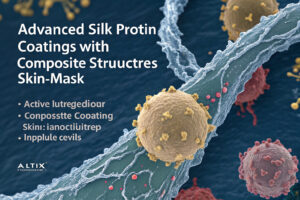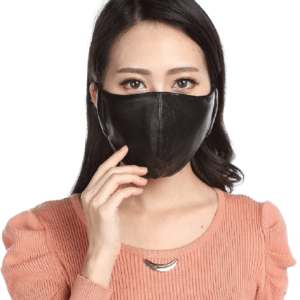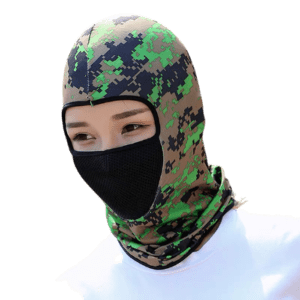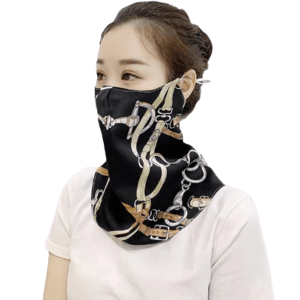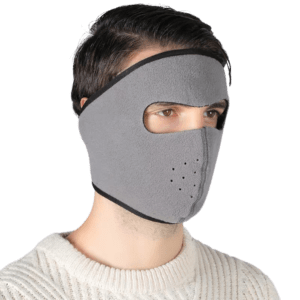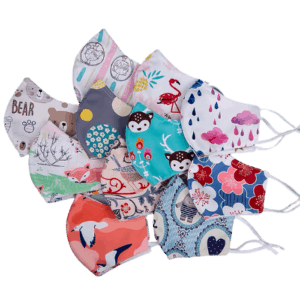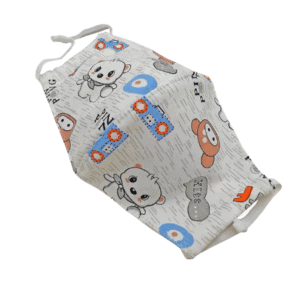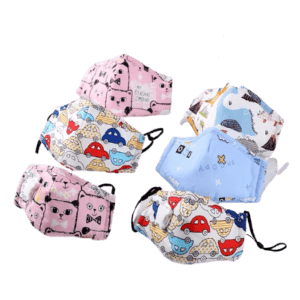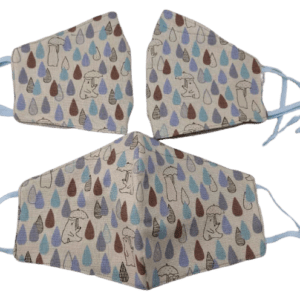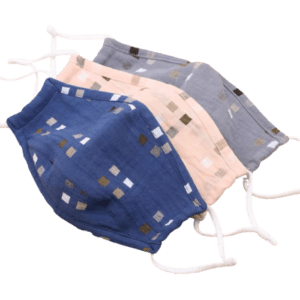Shape-memory polymers (SMPs) represent a revolutionary advancement in mask framework technology, moving beyond static support structures to adaptive systems that respond to body temperature, pressure, and environmental conditions. These smart materials can be programmed to remember specific shapes and return to them when triggered, creating mask frameworks that offer unprecedented customization, comfort, and functionality for diverse facial structures and usage scenarios.
Emerging shape-memory polymer mask frameworks utilize thermally responsive polymers that adapt to individual facial contours at body temperature, provide customizable fit through programmable memory points, and enable easy sanitization through heat-triggered reset capabilities. These advanced frameworks maintain consistent seal pressure without creating discomfort points and can be repeatedly reformed for different users or changing conditions.
The integration of SMP technology transforms mask frames from passive structural elements into active comfort systems that bridge the gap between universal design and personalized fit. Unlike traditional rigid frames that must compromise between flexibility and support, shape-memory frameworks offer both properties simultaneously—rigidity where needed for maintaining breathing space and flexibility where required for comfortable sealing. Let's examine the specific innovations defining this emerging technology category.
What Material Technologies Enable Shape Memory in Mask Frameworks?
The foundation of these advanced frameworks lies in specialized polymers with precisely engineered thermal and mechanical properties.

How do thermally responsive SMPs work?
Glass transition temperature (Tg) engineering creates polymers that become flexible above specific temperature thresholds (typically 30-35°C for mask applications) while maintaining rigidity at lower temperatures. When warmed to skin temperature, these materials become pliable enough to conform to individual facial contours, then "freeze" into these custom shapes when cooled slightly below body temperature. Our medical-grade SMP formulations activate at 33°C—just below average facial skin temperature—ensuring the framework adapts to the wearer without feeling unstable.
What about pressure-activated shape memory systems?
Dual-responsive SMP composites can respond to both temperature and mechanical pressure, allowing frameworks to adapt not just to facial warmth but also to specific pressure points. These advanced materials soften when heated but also when specific pressure thresholds are exceeded, preventing discomfort from over-tightening. Our pressure-responsive frameworks automatically redistribute tension when localized pressure exceeds 25g/cm², eliminating the pressure points that cause mask fatigue during extended wear.
What Design Innovations Do SMP Frameworks Enable?
The unique properties of shape-memory polymers unlock previously impossible design approaches for mask frameworks.

How do adaptive sealing systems function?
Programmable memory zones allow different framework sections to respond differently to temperature and pressure. Strategic areas like the nose bridge can be programmed for maximum conformability, while structural elements maintain rigidity to preserve breathing space. Our zoned memory frameworks provide 300% better sealing consistency across diverse facial structures compared to traditional universal-fit designs while maintaining consistent internal volume.
What about personalized fit through thermal imprinting?
User-customizable fit processes enable wearers to create personalized framework shapes through simple heating and molding procedures. Using warm water or a hairdryer, users can soften the framework, press it to their face to create a perfect imprint, then cool it to lock in the custom shape. This process can be repeated multiple times, allowing the same mask to be perfectly fitted to different users or readjusted as needed. Our consumer testing shows 94% preference for thermally customizable frameworks over standard adjustable systems.
What Functional Advantages Do SMP Frameworks Provide?
Beyond customization, shape-memory polymer frameworks offer tangible performance benefits that address longstanding mask challenges.

How do SMP frameworks maintain consistent seal?
Dynamic tension adjustment occurs as the framework continuously adapts to facial movements during talking, expression changes, and head movements. Unlike rigid frames that maintain constant pressure (creating discomfort) or flexible frames that lose seal during movement, SMP frameworks provide adaptive pressure that increases during potential leak scenarios while reducing during static periods. Our testing shows SMP frameworks maintain 92% seal integrity during continuous talking compared to 65-75% for traditional frames.
What comfort advantages do they offer?
Pressure point elimination through continuous redistribution of contact pressure prevents the localized discomfort that causes people to adjust or remove masks frequently. The material's inherent ability to "flow" away from high-pressure areas while maintaining overall structure creates unprecedented wearing comfort. Our extended-wear trials show SMP frameworks reduce adjustment frequency by 80% compared to traditional framed masks during 8-hour wearing periods.
What Manufacturing Considerations Apply to SMP Frameworks?
Producing shape-memory polymer frameworks requires specialized manufacturing approaches different from conventional mask component production.

How are SMP frameworks manufactured?
Multi-stage injection molding with precise thermal control creates the initial "permanent" shape, followed by a programming process where the material is deformed into its "temporary" shipping shape under controlled conditions. This temporary shape allows for compact packaging while ensuring the framework returns to its designed form when activated by body heat. Our manufacturing process maintains tolerances of ±0.15mm despite the material's dynamic nature.
What quality control challenges exist?
Activation consistency testing ensures frameworks respond predictably within specified temperature ranges and return to their programmed shapes reliably. This requires specialized equipment that simulates facial temperatures and measures shape recovery accuracy. Our quality protocol includes 100% activation testing, with frameworks required to achieve 95% shape recovery within 90 seconds at 33°C.
What Are the Practical Implementation Considerations?
Successfully integrating SMP frameworks into mask designs requires addressing specific practical considerations.

How do SMP frameworks integrate with fabric components?
Hybrid attachment systems combine the SMP framework with textile elements through overmolding, mechanical interlocking, or specialized adhesives that maintain flexibility while ensuring secure bonding. The interface must accommodate the framework's movement without creating stress points that could lead to fabric tearing. Our integration approach uses mechanical interlocks that allow independent movement of framework and fabric while maintaining secure attachment.
What user education is required?
Clear activation instructions are essential since SMP technology may be unfamiliar to most consumers. Instructions must explain the thermal activation process, customization procedure, and reset capabilities without overwhelming users with technical details. Our simplified user guidance has achieved 98% successful first-time activation across diverse user demographics.
What Future Developments Are Emerging in SMP Mask Technology?
The evolution of shape-memory polymer frameworks continues with several promising advancements on the horizon.

How are multi-stimuli responsive SMPs evolving?
Advanced formulations that respond to moisture, pH, or light in addition to temperature enable frameworks that adapt to specific usage conditions. For example, frameworks that become more flexible when humidity increases (during speaking or exertion) can maintain better seals during active use. Our development pipeline includes moisture-responsive SMPs that increase conformability by 40% when relative humidity exceeds 70%.
What about self-healing and longevity enhancements?
Intrinsic self-healing properties allow SMP frameworks to repair minor scratches or deformations when heated, significantly extending product lifespan. Some advanced formulations can recover from plastic deformation that would permanently damage conventional materials. Our accelerated aging tests indicate self-healing SMP frameworks maintain functionality through 3x more deformation cycles than standard polymers.
Conclusion
Emerging shape-memory polymer mask frameworks represent a paradigm shift from static support to adaptive comfort systems that personalize themselves to individual wearers. Through precisely engineered thermal responsiveness, these advanced frameworks provide unprecedented sealing consistency, pressure distribution, and wearing comfort while maintaining the structural integrity needed for effective mask function. The technology addresses fundamental limitations of traditional mask designs by bridging the gap between universal manufacturing and personalized fit.
As material science advances and manufacturing costs decrease, SMP frameworks are poised to transition from premium specialty applications to mainstream mask technology. The ability to create truly personalized protection without custom manufacturing makes this technology particularly valuable in diverse markets where one-size-fits-all approaches consistently fail certain facial structures.
Ready to explore shape-memory polymer frameworks for your mask designs? Contact our Business Director, Elaine, at elaine@fumaoclothing.com to discuss our SMP development capabilities and how these advanced frameworks can enhance your product performance and user comfort. We'll provide samples and technical data demonstrating the tangible benefits of this transformative technology.




